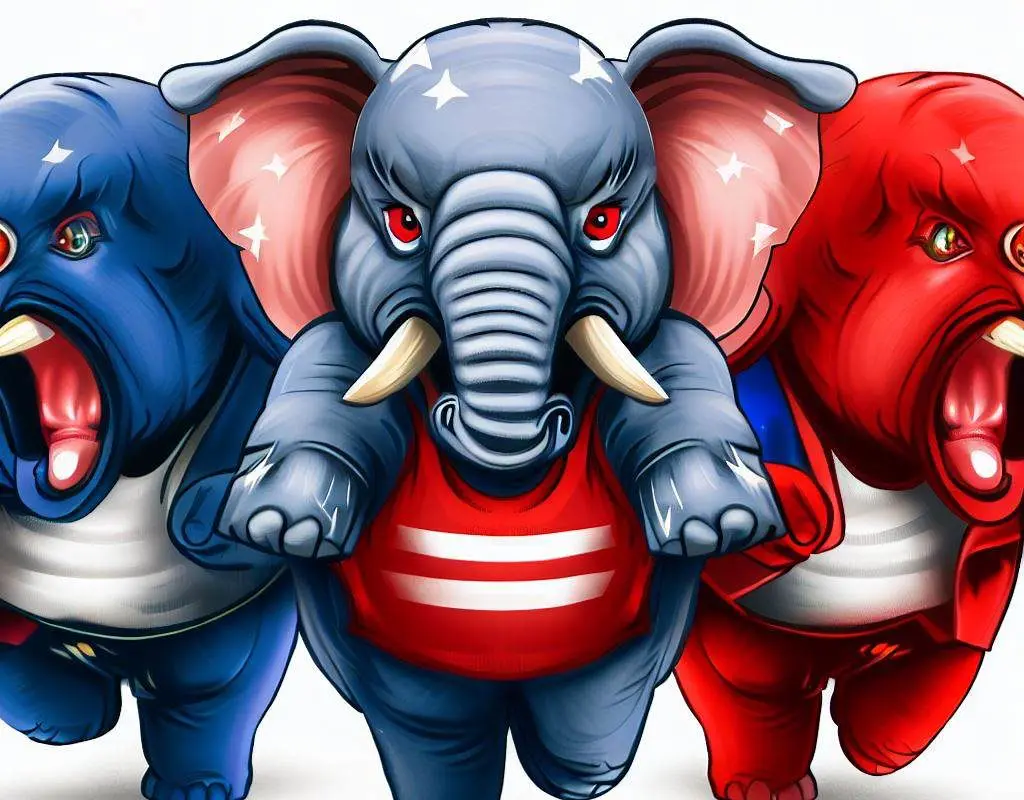There was a period of dashed hopes on Saturday morning during the impeachment trial of former president Trump. After securing a last-minute and unexpected motion to call witnesses, based on resurfaced testimony from Representative Jaime Herrera Beutler (R-WA), the House Impeachment Managers in conference with Senate Democrats and negotiation with Senate Republicans ended up deciding to call the vote instead.
They did win a concession to read Herrera Beutler’s statement into the Congressional record, and a historically unprecedented 57-43 impeachment vote to convict with 7 Republican Senators crossing the aisle to vote to convict the president of their own party of inciting sedition. But many Democrats who had gotten our hopes up for the prospect of getting to the bottom of what really happened on January 6 were quite deflated, and there were plenty of folks angry at Democrats for “caving” to Republicans once again.
The Real Reason Democrats didn’t call witnesses
As the Democrats have been making the press conference and media rounds to talk about the impeachment and talk about why they ultimately ended up deciding not to move forward with calling witnesses, some of the anger is subsiding but plenty of people are still miffed.
In my opinion, what is probably the strongest reason of all that Democrats didn’t call witnesses, is the one fact not being widely cited by the Democrats including the House Impeachment Managers. And that argument is: walking and chewing gum at the same time was not going to be possible. Calling witnesses would have meant getting led down the garden path by the Masters of Game Delay.
There was some optimism before the impeachment trial that the Senate would be able to find a way to handle the trial and also juggle legislative business plus confirmation hearings and votes for Biden cabinet members and other high-level executive positions. Unfortunately, the parliamentary rules for impeachment proceedings are both old and strict, and preclude the Senate from taking up other regular legislative or executive business while the trial is in progress from Monday to Saturdays until complete, according to the rules of 1868.
The only way to get around this is to have the chamber meet in a separate session. And the only way to get a separate session is via unanimous consent — which requires a full 100 votes. After the vote on calling witnesses, McConnell indicated he would withhold his party’s support for unanimous consent to do any other business besides the trial. He also reportedly threatened to obstruct and delay the rest of the 2-year legislative agenda, including the confirmation of Merrick Garland as AG. Everyone saw the struggle to get to just 57, so I agree it does not seem credible that enough GOP Senators at that point would have suddenly found an “I am Spartacus!” moment.
It would have sandbagged Biden’s agenda
Not being able to walk and chew gum at the same time would have tanked Biden’s ability to get the help to the American people that they need — full stop. No budget reconciliation and covid relief plan. No cabinet nominations. No other executive branch noms. No economic plan.
It would only play into the hands of Republicans to obstruct Biden’s agenda indefinitely and infinitely. Their base is rewarding them only for loyalty to Trump, and punishing any of the “deviants” who vote to hold him accountable. The GOP would just blame the Democrats for not getting anything done, and for dragging out this “highly political” trial that actually they will be drawing out with procedural nonsense and legal abuse — a Trumpian specialty!
I think it’s arguably just as important that Democrats be able to say that they got swift and solid help to Americans in a time of crisis, otherwise the 2022 midterms are the next jump point for authoritarian takeover. We can still pursue justice via other means that are just as enduring and have the potential to uncover so much more about the events leading up to and surrounding January 6.
The Other Good Reasons
Beyond the parliamentary jiujitsu, there are several other compelling reasons Democrats didn’t call witnesses:
- Witnesses are not generally called live onto the Senate floor — for impeachment trials, depositions are taken in trial committees, then read into the record. Senators have to submit their questions in writing, and there is no live cross-examination. In other words, the thing most folks would be looking for which is public testimony, would not be forthcoming — the committee work could take weeks or months, and Republicans benefit more from agenda delays because their base no longer even cares about policy anymore.
- Entering Jaime Herrera Beutler’s statements into the record accomplished the same thing a deposition would have done — it read her testimony into the official legislative annals of history. It gave additional ammunition to any of the potential federal, state, or local investigations that may follow the conclusion of the trial. And it showed indelibly the lengths to which even Republican lawmakers were willing to go to pursue justice against this lawless president.
- No more Republican votes were going to change anyway — the trial was at “peak persuasion” because the rest of the pack were going to hide behind the procedural issue regardless. In other words, like SCOTUS to Trump’s frivolous election fraud claims, they refused to hear the case “on the merits” even though they were subject to a binding resolution on that very question that their chamber had passed on Tuesday. They chose to ignore their own binding resolution and continued to cite the fact that Trump was no longer in office as the reason the Senate lacked jurisdiction to censure him — despite the fact that it was now minority leader Mitch McConnell who insisted on delaying the start of trial past inauguration day in the first place.
- They had already effectively made their case — as “beyond a shadow of a doubt” as is ever likely to happen in any impeachment trial ever, yet still falling on deaf ears, there isn’t much doubt that the House Managers overwhelmingly presented a successful case. I’m sympathetic to the argument that it may have proved diminishing returns as pursued through additional Senate trial time, and is undoubtedly better pursued by the justice system and through other committee work in both the Senate and the House.
- A 9/11-style commission is much more appropriate to actually get to the bottom of the political aspects of the crime — the independent commission created by House Speaker Nancy Pelosi today is going to have far more time, budget, reach, and depth than a drawn out trial in the Senate, and it won’t cannibalize the agenda of other business. It can go all the way down the rabbit hole and lead us to evidence on other potential co-conspirators, including Cruz, Hawley, Tuberville, Lee, Gomert, Greene, Jordan, Gosar, et al, all the financial ties in and around the Ellipse rally, and perhaps new federal charges for Trump’s pardoned felon buddies Bannon, Stone, and Flynn. Democrats didn’t call witnesses because now, they can call as many witnesses they like without any pressure or obstruction from Senate Republicans.
- His lawyers are just lying — the defense portion of the witness process would be just as looney toons and Four Seasons Total Lawyering as in the main show. Trump’s lawyers are just distorting, distracting, and debasing the profession of law with their clownish disregard of the augustness of the chamber in which they stood. Giving them more time to muddy the bulk of the trial record, and more time to delay delay delay and inject the Big Lies over and over again into public consciousness, would not have necessarily been worth the tradeoff in what we might learn from additional witnesses ourselves.
- Other witnesses went cold — Pence’s staff spoke up to refute the claim that Trump evinced concern for him during or soon after the January 6 attack. They said the former president did not contact Pence at all that day, or for 5 days afterward. And yet, when contacted by the House Impeachment Managers, they indicated they would not be willing to go so far as to testify in the trial.
- Enthusiasm for the trial would wane in the public eye — unfortunately, the general public has a much shorter political attention span than most of us Blue Check intellectuals. While it would be total catnip for us, it would like start to have diminishing returns in the eyes of the voters, especially when they discover that other business is not proceeding. Regardless of the fact that it’s actually the Republicans holding other legislative business hostage for the trial, it will be blamed on Democrats and our entire political system has been primed to blame everything on Democrats and is generally successful — like muscle memory.
I will be looking forward to the results of the independent commission, as well as the continued criminal prosecutions of the insurrectionists and at some point, hopefully, whoever it was on the inside who was helping them.


